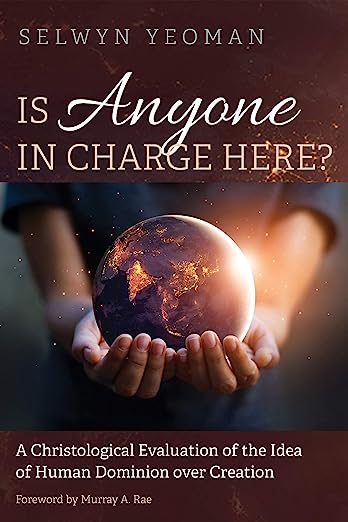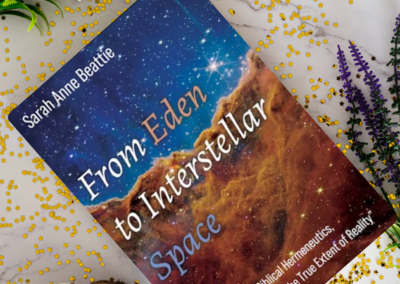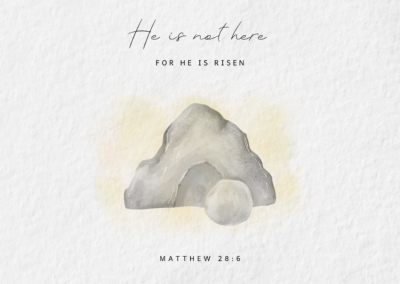
Purchase for $30.00/book plus $6.00 p and p, for one OR two copies; orders direct to Selwyn at <selwyn.yeoman@xtra.co.nz>
What are our responsibilities as human beings in the exercise of our undoubted powers over all other creatures and the earth itself? The idea that human beings have dominion over the rest of creation is often regarded as the chief source of the world’s current environmental crisis. From the universities to talk-back radio, this is a commonly repeated theme, but how strong is its basis?
Is Anyone in Charge Here? is a critical conversation with the seminal Lynn White paper, “The Historical Roots of Our Ecologic Crisis.” Easter Island, New Zealand, and ancient Mesopotamia, biblical exegesis, historical theology, monastic movements, and current environmental challenges are all explored. It examines the roots of the idea of human dominion, how the idea has been understood through the centuries, how people have worked it into their living, and how it might be constructively applied in our current crisis. All this is theologically evaluated in the light of Jesus Christ being both the true human, and God’s way of involvement in the world as creative Word, representative image, and serving Lord.
Selwyn Yeoman has served as minister of Christ in the Presbyterian Church of Aotearoa New Zealand since 1979. Two parishes had strongly rural interests where land care issues were paramount. Others were city churches where the built, urban environment was the context for creation care. In 2005, he worked in conservation and community development in Tibetan China. He has degrees in geography from the University of Auckland and divinity from the University of Otago.
A leading New Zealand public servant in the environmental area, on hearing of your project asked, “What on Earth would he do that for?” So tell us why?
It’s pretty clear that humans have an unmatched power in the Earth over other creatures, and in shaping our environment. But are we using that power well? Frequently, I think not. This book is intended to help us understand and use our power better. Many in environmental and policy circles refer to our present crisis as a “wicked problem” because it involves so many competing and conflicting issues. I hope this might be some help for people who are working through that tangle.
Are there more personal reasons as well?
My childhood home was above a bush clad gully where I spent much time in trees, observing birds build nests, lay eggs and rear their young; I experienced the changing of the seasons, and simply having a lot of fun. I came to love the living world around me. Then diggers moved in and houses were built, some of them designed by my father who was an architect. It was his earnings that helped our family stay fed! So I’ve been thinking for a long time about how we live here, and how we relate to the natural world of which we’re part. I want people to enter more into wonder, thoughtful care, and love!
Well public officials aren’t known for talking about love, much less theology! Is there anybody else you hope will be interested?
Oh yes! Pastors, ministers, leaders of all kinds, students, and the general Christian (and wider) public. Care of the Earth, expressed in the idea of “dominion” in Genesis 1, is the first commission to human beings. It’s about how we are to live here, but this comprehensive vision for our living is notoriously absent from almost all material on Christian discipleship or life in the Holy Spirit that I know of. My deepest hope is to enable deeper and more embracing forms of Christian living.
So how practical does it get, how much do you go beyond articulating ideas?
Frequently. I explore issues to do with worship and the contemplative life; practicalities around sustainable farming and food production, resource sustaining manufacturing, climate change, biodiversity loss and conservation, the spirituality and economics of consumerism, and the cultivation of contented, celebratory, contemplative, and justice-seeking lives. I think it’s pretty comprehensive and there’s something here for everybody!
Nevertheless, isn’t “A Christological Evaluation” getting a bit technical for material on discipleship?
Not if we believe that Christ is the Word through whom all things were made, by whom they’re sustained and reconciled, and in whom they will find their ultimate fulfilment! All discipleship training has to be about our participation in Christ, and that’s Christological! We’re called to enter into Christ’s resurrection life, to live in the power of his life-giving spirit, and model the life of the Kingdom of God, which he inaugurated and which has been described as ‘creation healed.’
What are some of the important things you want to say about Christ and the care of creation?
The New Testament is full of stories demonstrating that Christ’s lordship is a servant lordship. That’s the nature of dominion, and in him we share in serving the wellbeing of the whole Earth. It’s the practice of hospitality. Other aspects include how Jesus’ declaration of Sabbath/Jubilee can be central to living ecologically faithful lives. And there’s exploration of the ecological significance of the traditional three “offices” of Christ – prophet, priest, and king.
Even so, what does this have to do with our proclamation of the gospel?
The gospel is the good news that, in Jesus Christ, the creator became part of creation, in order to work reconciliation of creation with God. Much of the book is about how we enter into and participate in this reconciliation. Until we tell this story of a reconciliation that involves all creation, we are short-changing the life and work of Christ, and we are depriving many concerned people of a gospel connection which can speak good news to them.
What else do you think makes the book special?
It’s an interrogation of ideas in Lynn White Jr’s paper, “The Historical Roots of our Ecologic Crisis,” which although over fifty years old remains incredibly influential in both academic and popular circles. I believe it has really disabled Christian confidence in addressing environmental issues. White’s really important insight was that unconscious theological, religious, and spiritual ideas undergird our cultures and environmental actions, yet he virtually ignored the whole hugely formative patristic and monastic traditions in his critique of Christianity. So I explore how influential early Christians (Irenaeus, Athanasius, Augustine, Basil of Caesarea) understood our relationship with the Earth and worked that into their pastoral ministries. I also enjoyed exploring how the traditions of Christian monasticism have given both theological vision and practical expression to our relationship with the Earth.
The patristic era was a long time ago; can that really have much relevance today?
It’s remarkable! As the first Christians took their message out of Jewish circles into the pagan world they encountered deep negativity about creation – certainly it was not regarded as the good work of God. And they encountered ideas that everything was inhabited by little gods and spirits – the divinized world, that is frequently celebrated today, but which in its time was completely unpredictable and the source of much fear. Indeed, the creation story in Genesis 1 is also engaging issues very similar to this. Those are not uncommon positions in the contemporary world and patristic insights have real usefulness in engaging them!
If we accept as a working hypothesis White’s assertion that “the victory of Christianity over paganism was the greatest psychic revolution in the history of our culture” (while recognizing that the victory was not then, and even less now, nearly as complete as White might suggest or Christians might hope), we can identify at least three elements in our sources that contribute to this psychic revolution.
Creation Ex Nihilo
Firstly the doctrine of creation ex nihilo, common to all our sources, posits a completely new conception of the relation between God and the world. God has not been caught in an eternal struggle to impose a divine will upon eternal but recalcitrant—even essentially evil—matter. Rather, all that is arises from the divine command “let be,” is an expression of the divine Word, is adorned by the Spirit, and utterly dependent for continued existence upon the divine determination to sustain it. All that is is held in this divine love, and has been brought to being in order to enjoy and participate in this love. Such radical contingency makes all of life a gift, and places human beings in exactly the same position of dependence as all other created things. It is this dependence upon God, and the possibilities which may arise from this divine purpose in creation, that make creation “good.”
The struggles we have traced with paganism, Manichaeism, and Gnosticism, right back to Marcion (or even to the writers of the Johannine letters, and Paul to the Colossians), are all one struggle to assert the divine origin, goodness, and value in the divine purpose of ALL created things, and not the human only. White slides too easily and superficially into his claim that “man shares, in great measure, God’s transcendence of nature [and thus] Christianity . . . established a dualism of man and nature,” but as we have seen, humanity shares nothing of God’s transcendence of nature and has neither brought to being nor sustains anything. Rather, the human beings are utterly embedded in nature, subject to all its processes, and as dependent as any other creature.
Paulos Gregorios, in a review of various uses of the term “nature,” notes that “the Hebrew tradition . . . has no word at all for what we call nature . . . no notion of something ‘out there’ which they [i.e., humans] were to set about ‘desacralizing’ and then dominating,” and he continues,it is clear in Gregory of Nyssa, who laid the foundations for later Christian reflection on the subject, that the basic distinction for patristic literature is not between humanity and the non-human part of creation, but between “He who truly is” (ὸ̀ ὸ̀ντος ω̃ν) and “the things which merely exist” (τὰ πάντα). The two do not share the same mode of being, and to apply verbs like “is” or “exist” in the same sense to both God and the creation seems to Gregory to be disastrous.
The only dualism is that between God and creation, and even that distinction is not strictly dualistic because contingent creation is entirely an ongoing act of the sustaining divine grace.
In contrast, White grieves the loss of a divinized universe where “every tree, every spring, every stream, every hill had its own genius loci, its guardian spirit,” all of whom were in constant need of being placated. And they could be placated—at a cost! Our foray into historical geography has demonstrated that such divinization provides no assured protection for the natural world. The need to honor gods or ancestors could lead to devastating environmental consequences and Athanasius, who shows some interest in geography, also explored the deleterious impacts of honoring the creation as if it was divine.



